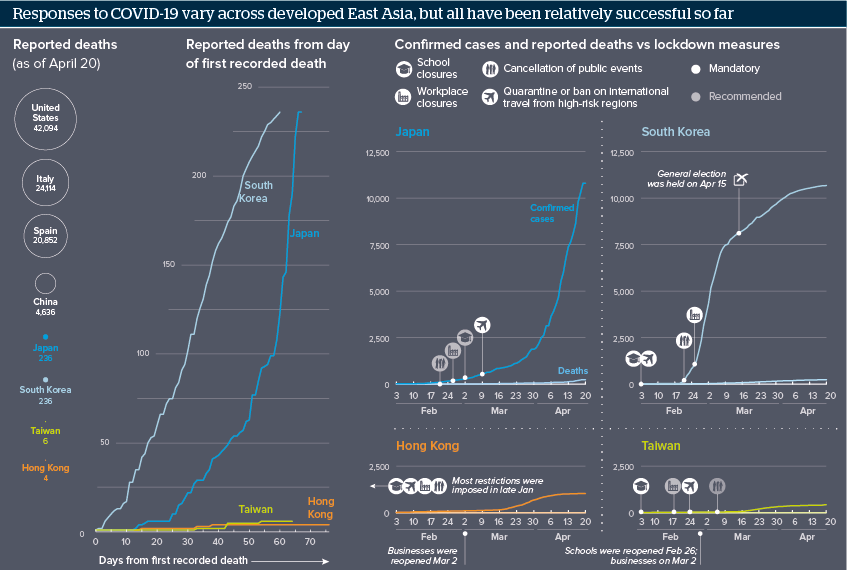East Asia’s COVID-19 success will be hard to replicate
Hong Kong, Japan, South Korea and Taiwan have all been relatively successful in dealing with COVID-19
Source: Johns Hopkins University Center for Systems Science and Engineering; media reports
Outlook
Despite their proximity and high numbers of people travelling to and from mainland China, East Asia’s developed economies have all been relatively successful in containing the spread of COVID-19, at least so far.
Early responses because of their experience with SARS in 2003 and realistic risk assessments probably played a part. That means it may be too late for many other governments to draw lessons applicable to their own situations.
Cultural factors -- a strong awareness of personal hygiene, low level of interpersonal touching during routine social interaction and customary wearing of facemasks -- may also create a certain level of inbuilt resistance that is not easily replicable.
Impacts
- South Korea’s belated success shows that a country can turn the COVID-19 situation around without a nationwide lockdown.
- Japan’s relatively relaxed initial response seemed to work for a long while, but could soon fail to prevent hospitals being overwhelmed.
- Taiwan’s fast and decisive response has prevented the virus taking hold domestically, but in the long run this can only buy time.
- COVID-19 success boosted popular support for governments in Taipei and Seoul, but anti-government sentiment will remain strong in Hong Kong.
See also
- Taiwan’s profile rises amid China-US tensions - Jun 2, 2020
- Hong Kong politics will heat up as lockdown eases - May 13, 2020
- COVID-19 will improve real-time epidemic modelling - Apr 17, 2020
- More graphic analysis
